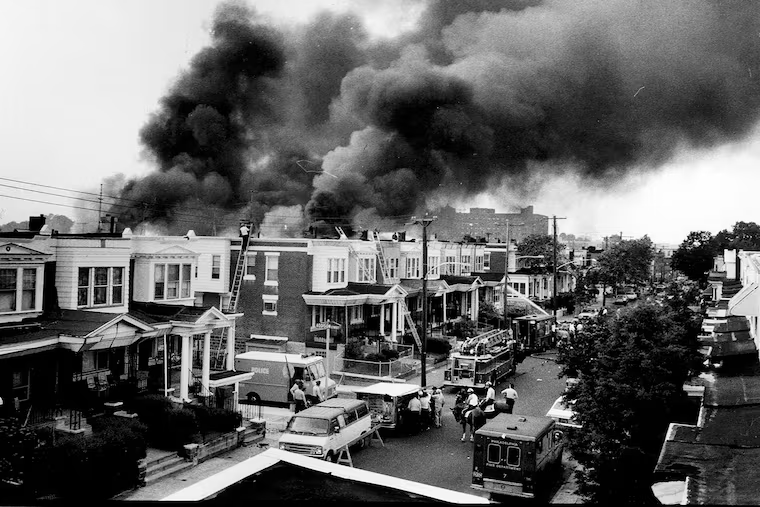Like Penn, Princeton criticizes professors over MOVE remains
Princeton apologized, saying anthropologists Alan Mann and Janet Monge had shown “exceedingly poor judgment and insensitivity."

Like the University of Pennsylvania last week, Princeton University on Tuesday sharply criticized two professors for how they treated human remains taken from the smoldering MOVE house after Philadelphia police bombed it 36 years ago.
The report adopted virtually the same words as the Penn review, saying that anthropologists Alan Mann and Janet Monge had shown “exceedingly poor judgment and insensitivity.”
The reprimand was contained in a 60-page report summarizing an investigation for Princeton by the Ballard Spahr law firm of Philadelphia. Again mirroring the Penn report, the Princeton review said neither professor had violated any university policy or law, hastening to add that no policies were in place at the time for them to violate.
In the May 1985 confrontation with the anarchist group, police bombed MOVE’s fortified house in West Philadelphia to dislodge a rooftop gunport. The bomb started a fire that destroyed 61 houses, including MOVE’s. Six adult members of the group and five of their children were killed.
Though the bodies of all victims were buried, in 1986 city officials gave leg and pelvic bones to Mann, then at the University of Pennsylvania, to assist in a forensic examination of them. The city ultimately concluded they were those of 14-year-old Katricia “Tree” Africa.
Mann never returned the remains to the city or the MOVE family. He kept them at Penn and left them there when he left in 2001 to take a position at Princeton.
Ballard Spahr reported that Monge, an anthropologist at Penn, took the material to Princeton several times to carry out forensic work on the remains with Mann. She also used the bones as a teaching aid twice at Princeton, in 2015 and in a video class in 2019.
Mann, now 81, retired in 2015. He declined to comment last week when reached by The Inquirer about the Penn investigation findings, but had told lawyers in that review that the researchers “undertook this work because we wanted to help document a crime” and he acknowledged the anguish of the MOVE victim’s relatives. The Penn report described Monge, now 67, as “remorseful.”
Princeton’s president, Christopher L. Eisgruber, on Tuesday apologized on behalf of the university for the use of the remains in classes.